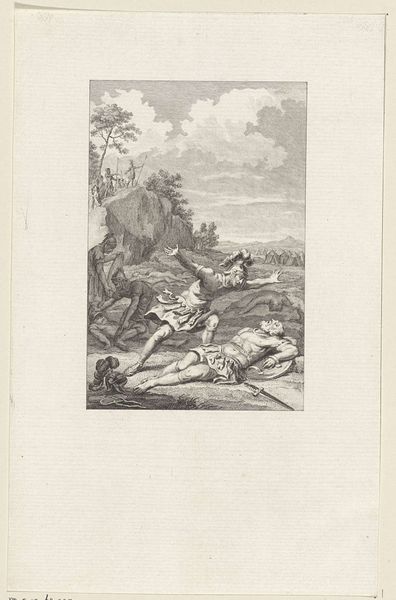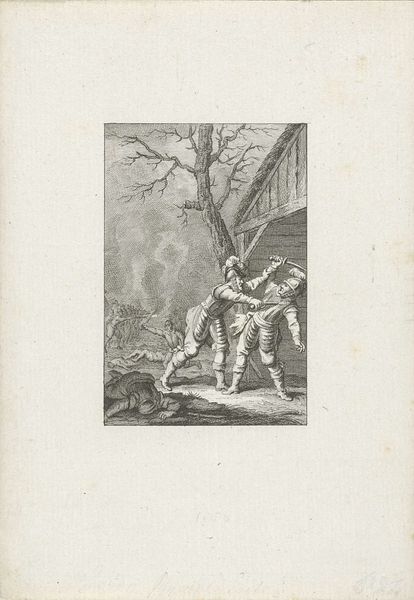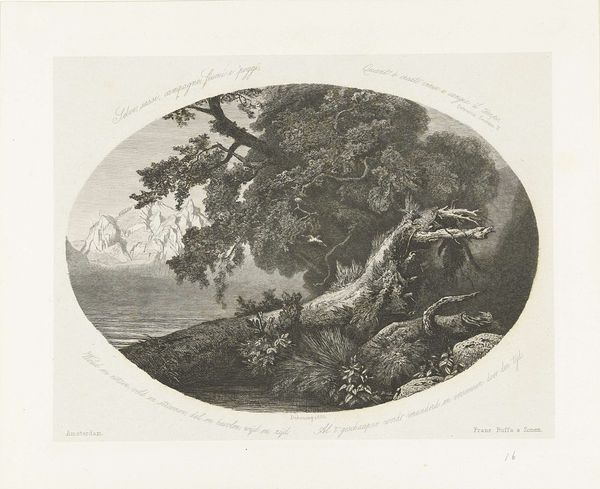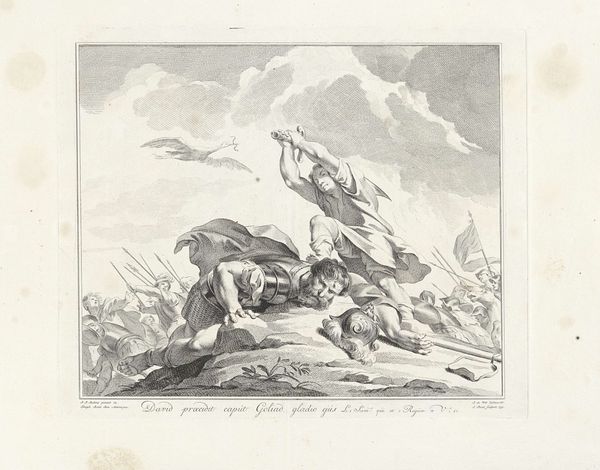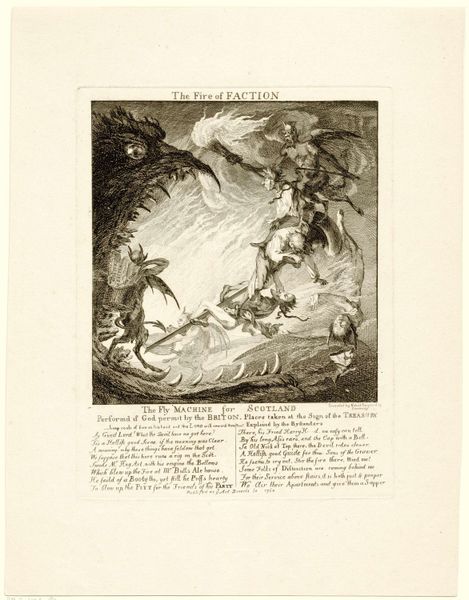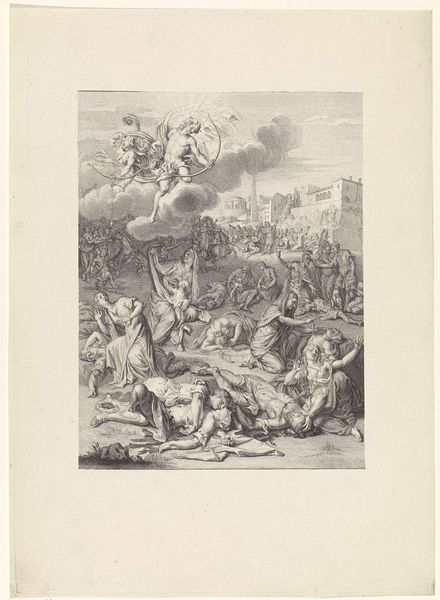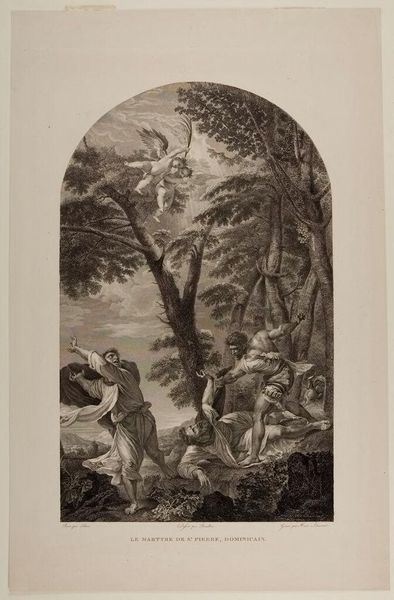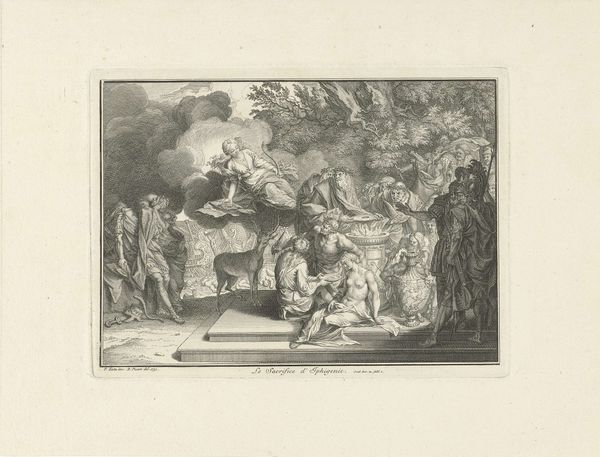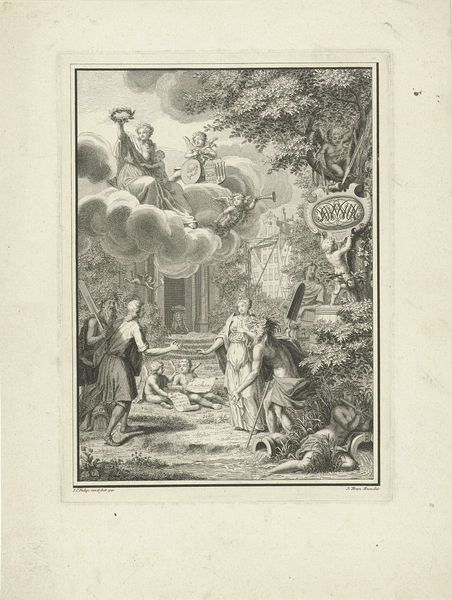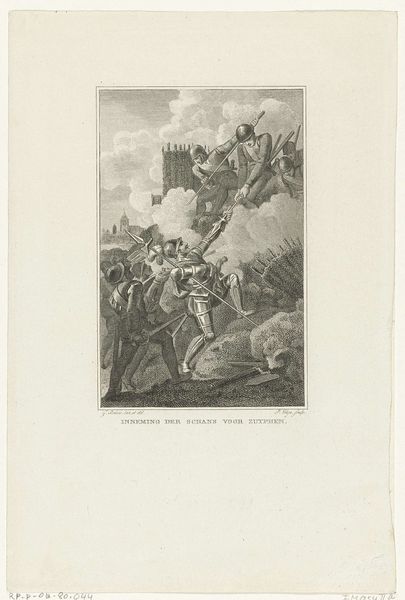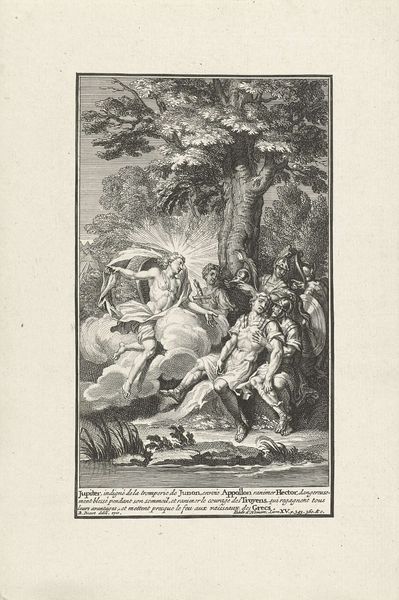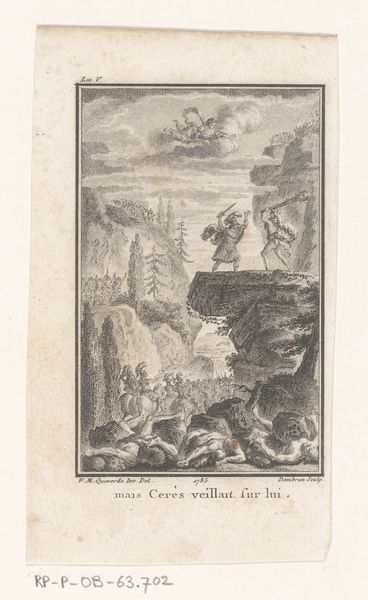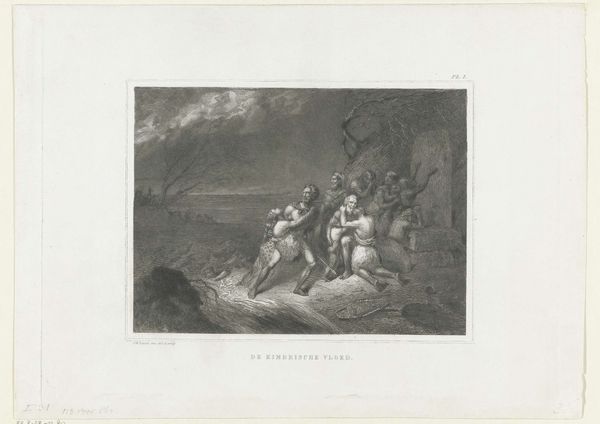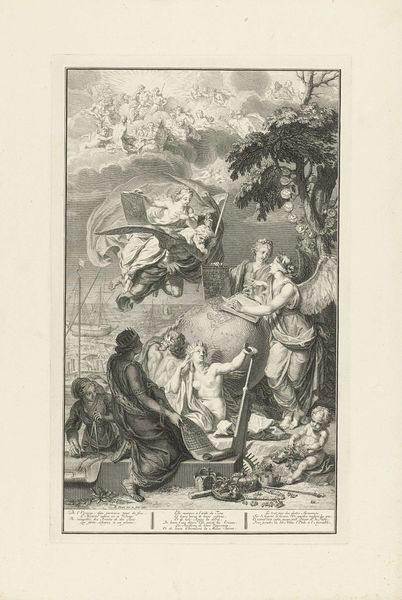
engraving
#
narrative-art
#
baroque
#
figuration
#
pencil drawing
#
line
#
history-painting
#
engraving
Dimensions: height 235 mm, width 183 mm
Copyright: Rijks Museum: Open Domain
Editor: So, this engraving, "Telemachus Stort in Zee," which roughly translates to Telemachus falling into the sea, was made in 1732 by Bernard Picart. The Rijksmuseum is where it now resides. Honestly, it looks like utter chaos! Figures plummeting, ships wrecked...it’s dramatic, in that very baroque way. What grabs you when you look at this piece? Curator: Chaos, yes! But a purposeful chaos, wouldn’t you say? I see it as a carefully orchestrated ballet of disaster. Notice how Picart uses line work; it's so delicate yet conveys such turbulent movement. It's as if he’s trapped a fleeting, emotional storm on a page. Look closely at Mentor, how he flings himself— seemingly against his own will — into the waves, as Cupid hovers nonchalantly overhead. Editor: So, Mentor is choosing to leap? I initially saw him as being thrown. What do you make of Cupid there? Is he meant to be a symbol of why Telemachus fell? Curator: Precisely! Cupid, the mischievous instigator! Perhaps the love-lorn Telemachus was lured by something (or someone) that capsized his good sense, forcing Mentor's drastic intervention. Editor: It's all starting to click into place for me. I hadn’t really considered that each figure was actively engaged in that disastrous tumble! Curator: It is far from a passive event. And sometimes the best stories are when people make big dramatic decisions, for love no less. So, are you going to fall for this dramatic chaos now too? Editor: I guess you could say it pushed me in the right direction... Now it is just a beautiful mess, I will make sure to not forget all of this background information in the future!
Comments
No comments
Be the first to comment and join the conversation on the ultimate creative platform.
